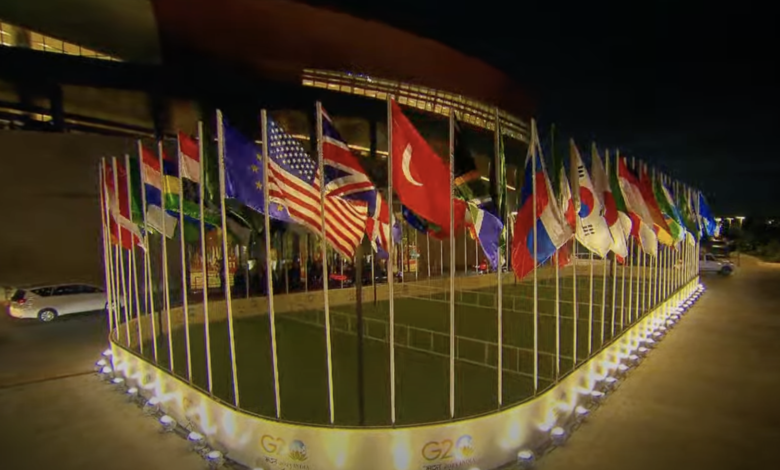Historic New Delhi Leaders’ Declaration Adopted by G20 Leaders

In a momentous gathering of world leaders, the G20 Summit in New Delhi concluded with the adoption of the New Delhi Leaders’ Declaration. This historic event marks a significant turning point in global cooperation, as leaders from the world’s largest economies united to address pressing global challenges.
Indian Prime Minister Narendra Modi, the host of the summit, lauded the adoption of the New Delhi Leaders’ Declaration and expressed his gratitude to all fellow G20 members for their support and cooperation.
Sharing the digital copy of the declaration on social media, Prime Minister Modi stated, “History has been created with the adoption of the New Delhi Leaders’ Declaration. United in consensus and spirit, we pledge to work collaboratively for a better, more prosperous, and harmonious future. My gratitude to all fellow G20 members for their support and cooperation.”
The New Delhi Leaders’ Declaration is a comprehensive document that outlines a range of critical topics and initiatives to address global challenges. It touches upon various key areas, including:
1. Strong, Sustainable, Balanced, and Inclusive Growth
- Global Economic Situation
- Unlocking Trade for Growth
- Preparing for the Future of Work
- Advancing Financial Inclusion
- Fighting Corruption
2. Accelerating Progress on Sustainable Development Goals (SDGs)
- Recommitting to Achieving SDGs
- Eliminating Hunger and Malnutrition
- Macroeconomic Impacts of Food and Energy Insecurity
- Strengthening Global Health and Implementing One Health Approach
- Finance-Health Collaboration
- Delivering Quality Education
- Culture as a Transformative Driver of SDGs
3. Green Development Pact for a Sustainable Future
- Macroeconomic Risks Stemming from Climate Change and Transition Pathways
- Mainstreaming Lifestyles for Sustainable Development (LiFE)
- Designing a Circular Economy World
- Implementing Clean, Sustainable, Just, Affordable & Inclusive Energy Transitions
- Delivering on Climate and Sustainable Finance
- Conserving, Protecting, Sustainably Using and Restoring Ecosystems
- Harnessing and Preserving the Ocean-Based Economy
- Ending Plastic Pollution
- Financing Cities of Tomorrow
- Reducing Disaster Risk and Building Resilient Infrastructure
4. Multilateral Institutions for the 21st Century
- Reinvigorating Multilateralism
- Reforming International Financial Institutions
- Managing Global Debt Vulnerabilities
5. Technological Transformation and Digital Public Infrastructure
- Building Digital Public Infrastructure
- Building Safety, Security, Resilience and Trust in the Digital Economy
- Crypto-Assets: Policy and Regulation
- Central Bank Digital Currency
- Fostering Digital Ecosystems
- Harnessing Artificial Intelligence (AI) Responsibly for Good and for All
6. International Taxation
7. Gender Equality and Empowering All Women and Girls
- Enhancing Economic and Social Empowerment
- Bridging the Gender Digital Divide
- Driving Gender Inclusive Climate Action
- Securing Women’s Food Security, Nutrition, and Well-Being
- Creation of a Working Group on the Empowerment of Women
8. Financial Sector Issues
9. Countering Terrorism and Money Laundering
10. Creating a More Inclusive World
The preamble of the declaration emphasizes unity among nations and their commitment to addressing global challenges. It highlights the importance of sustainable, inclusive, and just development models while leaving no one behind.
The declaration also addresses geopolitical issues, including the war in Ukraine, and underscores the significance of upholding international law and the principles of the United Nations Charter.
As the G20 leaders embark on this historic journey, the New Delhi Leaders’ Declaration serves as a roadmap for a brighter and more prosperous future, emphasizing cooperation, sustainability, and inclusive growth for the benefit of all nations and their people.




